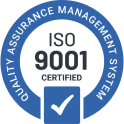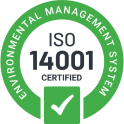
Solar Recycling Compliance
At SolarPanelRecycling.com (SPR), our internal compliance team brings decades of experience in certification management, best practices, and resources to efficiently manage the high volumes of solar panels in an industry marked by rapidly changing technologies and regulations. Trusted by some of the largest utility and energy companies in the United States, SPR’s dedicated compliance team is equipped to handle any transportation and recycling compliance inquiries across all states.
Though the solar panel recycling industry is still in its early stages in the U.S., SPR has already established itself as a leader, recycling millions of solar panels across multiple states for major utility companies, EPCs, O&Ms, and more. We are well-versed in the challenges of solar panel recycling, including compliant transportation, hazardous waste management, solar farm staging, clean separation of commodities, and adherence to decommissioning plans and regulations. Our commitment to compliance and sustainability is further demonstrated through rigorous toxicity testing of glass, research and development of advanced processes, and a strong focus on future Environmental Health and Safety regulations.




Solar Decommissioning Policy
Several states have already implemented policies on solar panel decommissioning and recycling, with these regulations rapidly evolving as renewable energy becomes a top priority for legislators. Our team at SPR is deeply engaged and frequently consulted at both the state and federal levels. We ensure your project’s compliance at every stage, guiding you through the complexities with confidence and expertise.

Active Decommissioning Policy

SPR Recycling Facility
SPR owns and operates all our recycling facilities. This offers peace of mind to our clients that all their solar panels are being recycled through SPR’s advanced recycling technologies and not outsourced to incomplete recyclers.
Solar Panel Composition
There are two types of solar panels that are commonly seen in our recycling processes:
Silicon Solar Panels: Mono-crystalline and poly-crystalline
According to the US EPA, crystalline-silicon solar panels represent over 95% of solar panels sold today. SPR’s solar panel recycling processes have seen mono and poly-crystalline solar panels comprise over 98% of our throughput.
- 90% of c-si panel weight is glass panel, aluminum frame, silicon cells
- The rest is comprised of small traces of copper, zinc, lead, silver, and tin
As the industry braces for impending regulations and recycling standards, incomplete recycling or landfilling remains a common practice. Often, only the aluminum—making up about 8% of a panel—is recovered, while the rest is co-mingled and sent to landfills. Advanced technology and specialized recycling processes are essential to cleanly separate the glass, which constitutes the majority of the panel, from the silicon, metals, and plastics. At SPR, we not only utilize cutting-edge recycling technologies to achieve clean separation and true recycling, but we are also fully committed to safeguarding our employees, community, and environment through stringent internal EH&S policies.
Federal and State Hazardous Waste Regulations
Federally, discarded solar panels are currently considered solid waste, and may be regulated under the RCRA Subtitle D as well as state and local programs and regulations. A solar panel is determined to hazardous waste, by failing the TCLP test or lack of, so it is important to mitigate transportation compliance and environmental risks by partnering with an experienced recycler in SolarPanelRecycling.com.
At times, modules can fail TCLP with lead content, or a TCLP is not readily available, therefor SPR can help properly navigate our client through these scenarios. Our compliance team is staying current to this ever-changing landscape to assure compliance, and most importantly, promotes the recycling of solar panels versus hazardous waste landfilling.

Environment
Utilizing the recycling services of SPR for end-of-life solar panels, even in states without existing regulations, offers numerous benefits, including:
- Shows a commitment to your stakeholders and local communities to environmental stewardship
- Recovery of valuable resources that can be reintroduced into the supply chain
- ESG regulations and reporting
- Facilitating the acquisition of permits at local and state levels by having an established decommissioning and recycling plan with a proven, high-capacity recycler like SPR
- Establishing efficient internal recycling programs, best practices, and external vendor relationships ahead of impending regulations at local, state, and federal levels